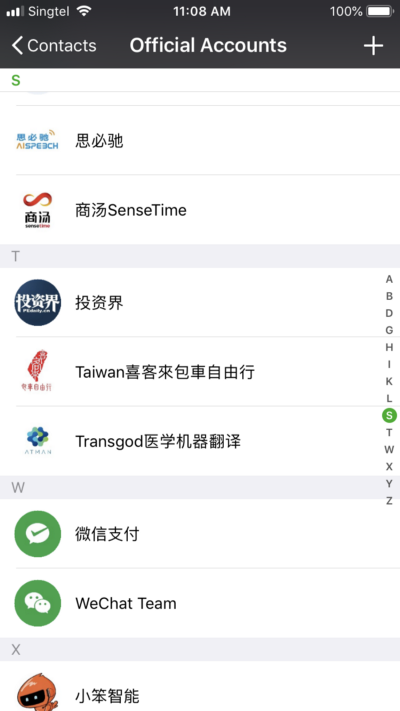“Autonomous applications will disappear in a few years”: where does the development of mobile ecosystems lead

From the translator: this post is a translation of the original article by entrepreneur Lance Un, who is very closely connected with the entire mobile sphere. Eun talks about how quickly the situation in mobile development is changing. From the stage of an an app for that, ”we quickly came to the stage of“ is this application needed? ”.
I believe that very many mobile applications and even entire categories will disappear within a few years. Most likely, venture capital and investors who have invested in mobile startups will suffer.
Skillbox recommends: Online course "Mobile Developer PRO" .This thought occurred to me about six years ago. Then I wondered about whether or not to invest money in a startup that develops applications for developing applications. It's about creating programs without having to write code. You enter the basic information and at the output you get an application hosted on a cloud server.
We remind: for all readers of "Habr" - a discount of 10,000 rubles when recording for any Skillbox course on the promotional code "Habr".
The idea was that each of us could create applications. The authors believed that such will soon appear in all - companies and individuals. Unfortunately, the situation was somewhat different, and this is why.
We are dealing with no more than 50–100 applications.
If you do not believe me, just count the number of applications that are installed on your smartphone. Most likely, you have no more than 100 of them. Most of the time we work with less than 30. Too many installed programs slow down the operation of the device, since even in the background many of them consume resources.
Tell me honestly, will you install apps for your favorite restaurants, stores or laundries?
The application must perform a specific function, not just provide information
As soon as smartphones appeared, many companies began to develop applications for them. But it turned out that their service is a headache. Every time you update data on your website or start promoting a new product, you have to do the same with the application — add updated information to it.
In addition, every time a developer of a smartphone or a mobile OS updates his brainchild, developers have to update applications, search for and eliminate bugs, and stabilize work. And if we consider the number of manufacturers of smartphones and the technical features of each model of the device, then we get a huge technological zoo, which is not easy to work with.
A little later, many people understood the truth: if you are not a large retailer or a popular media that needs to interact with its users often, then you need a mobile friendly website.
Small apps will become part of social media and ecosystems of mobile wallets.
Yes, it seems to me that over time, mobile software will evolve and become part of a larger, part of a huge ecosystem. This may be a social platform or a mobile wallet.
There are examples now - when restaurants and cafes advertise themselves inside the platform for the delivery of food. In addition, food delivery applications are gradually integrated with mobile wallets and geoshering services to make the user's life more convenient.
An example is Go-Jek, one of the largest mobile applications for motorcyclists in Indonesia. This is a whole combine that brings together motorbike drivers and users. The latter with the help of the application can call a taxi, order the delivery of food or drugs. Motorcyclists in this case execute the order for transportation or delivery, and the route of transport is displayed on the map. The application also has other features, such as a mobile wallet or bill payment services.
The creators of Go-Jek were definitely inspired by the experience of WeChat.

WeChat is the largest social platform with a billion users. Any more or less self-respecting Chinese business is represented here. WeChat has an ecosystem that we talked about above.
Inside the platform there are separate applications that belong to third-party companies. Such a scheme of work is possible thanks to the API - developers create mini-applications inside one large one. Thus, users who are in WeChat, very rarely leave it, because everything you need is inside.
In addition to food delivery, there are applications of payment systems, social networks and much more.

In addition to WeChat, Alipay and Baidu have already begun to transform towards a similar form factor. In other countries, there is no such thing or almost none - “main among applications” currently exist only in Asian countries. The West is a little behind, but there is no doubt: soon something similar will appear in the United States, Europe or anywhere else.
Even successful and well-known applications will be integrated.
Virtually any sphere begins to consolidate with time, moving from the particular to the general. For applications, one of the reasons is the possibility of reducing the cost of promotion. So, if there is a popular "mother platform" with millions of users, then a separate application is easier to promote within this platform than outside it.
With desktop applications, about the same thing happens, with its own specifics. In many cases, users work with cloud services, rather than local applications. It is convenient and does not require installation.
As mentioned above, servicing a stand-alone mobile application takes time, effort and money. Especially when you have to follow the constant changes in the operating system - iOS or Android. For developers, it is easier to create applications for a platform that takes care of everything.
I am sure that the era of autonomous applications is coming to an end, and a new round of development of mobile ecosystems begins.
Skillbox recommends:
- Practical course "Profession web developer" .
- Online course "Profession Frontend-developer" .
- Practical annual course "PHP-developer from scratch to PRO" .
